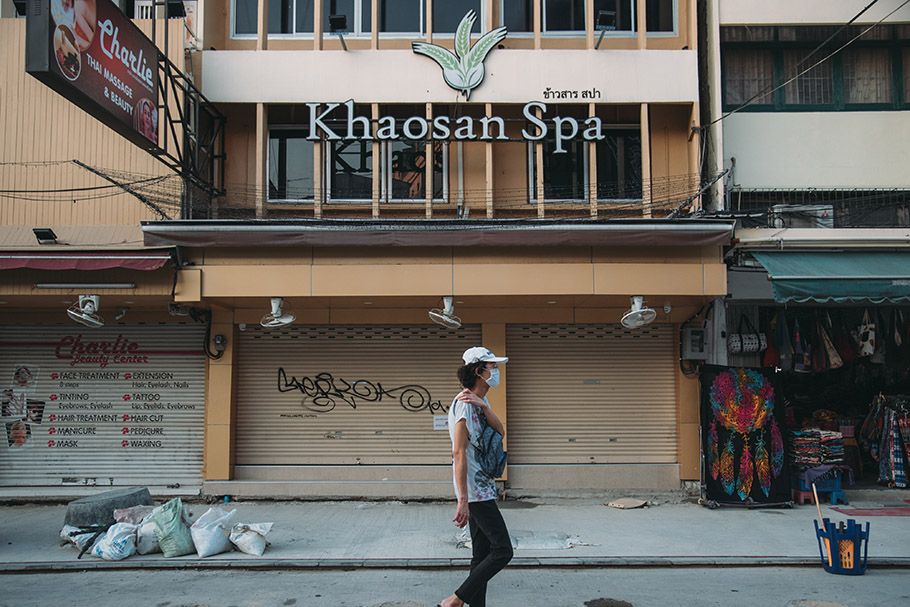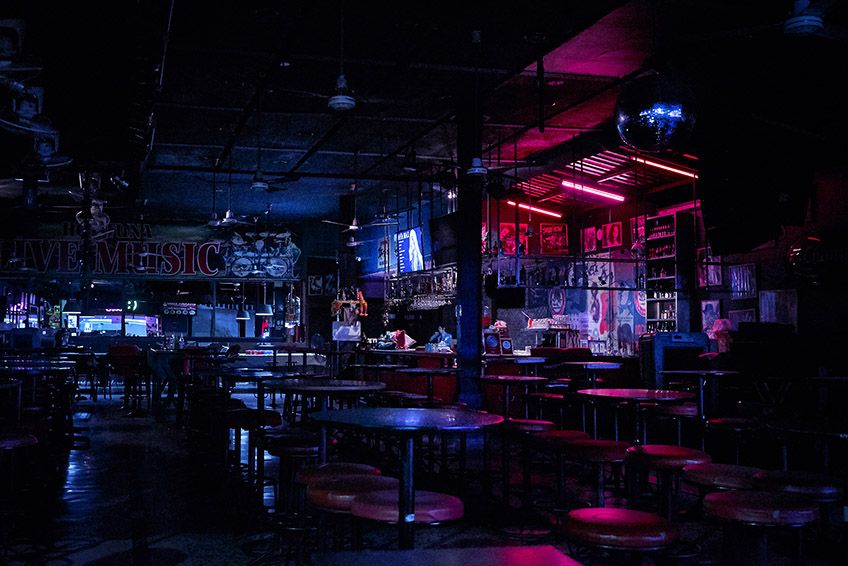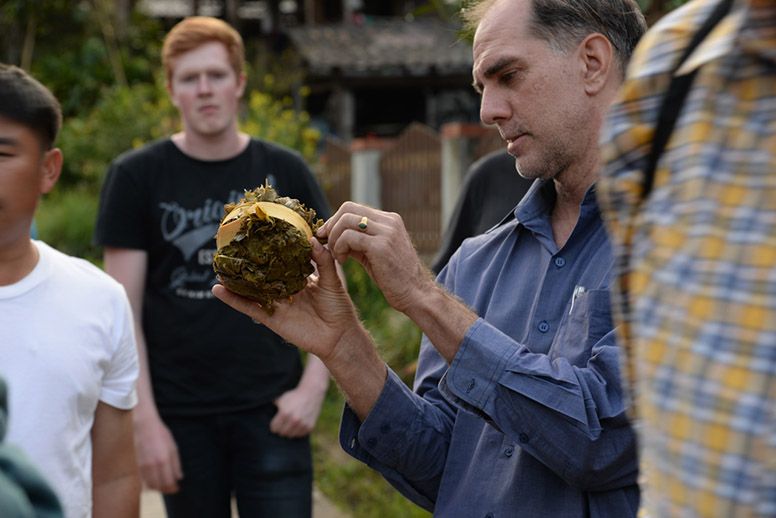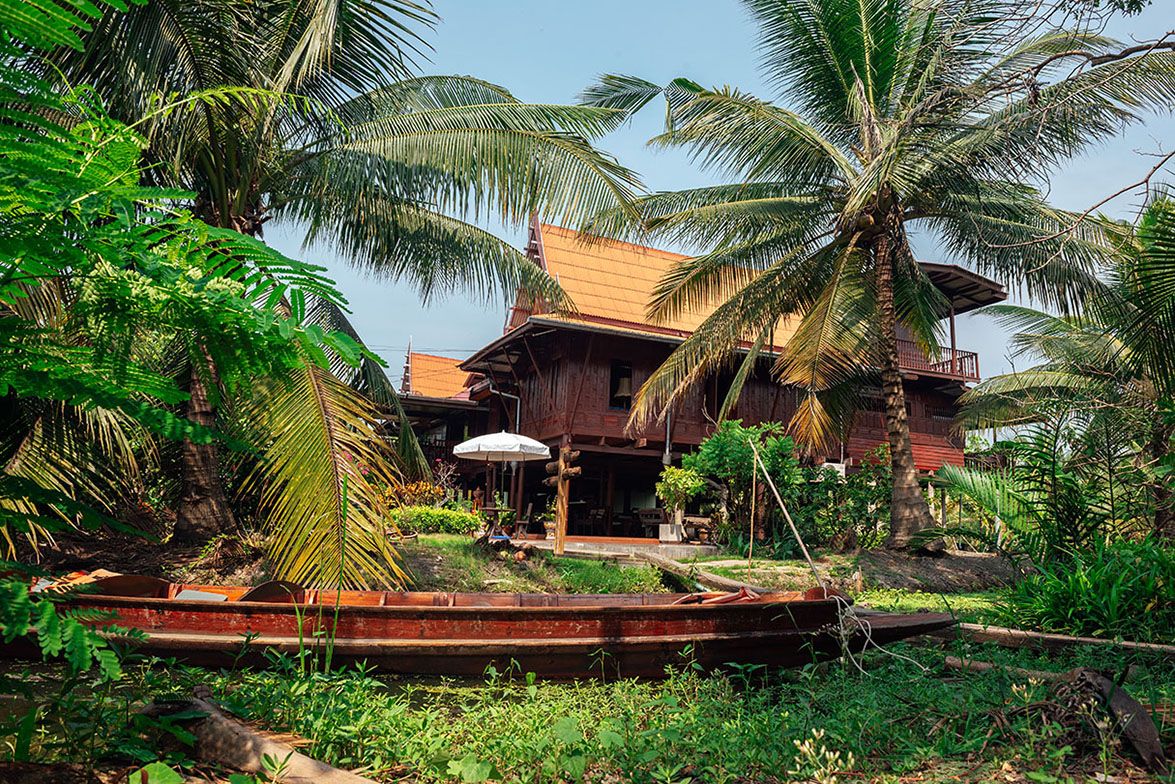28 Mar Self-reliance and local economy may help us get through the COVID-19 crisis
While the Coronavirus has been headline news for weeks in Thailand and most of the world, and the general focus has been on mitigating damage and losses and preparedness, I have thought and felt for some time that there must be much more.
For a temporal event, this looks like it may be the most defining world event of my lifetime. Climate change and its effects may be of greater impact as are transitions in terms of how we communicate, or developing AI and automation, but all of these are rather progressive. We can see clear and dramatic changes when we look back 30 years, but the change from year to year is gradual, thus most of us at least feel like we are adapting and getting used to the new norms.
I don’t think anyone expected or was really ready for the pandemic we see unfolding with the coronavirus. But now it is clearly a huge factor in how we are living and working. I am not really sure what is or will be the greater, the health related impacts or the economic impacts, but they are both huge.

Adaptation through shutdown followed by massive layoffs.
It has become rather clear what is our likely situation in the near future for a period of time, which looks like it will be common to many if not most parts of the world. More and more public events are being cancelled and people observe a greater caution when going out. Air transport and tourism have already been dramatically effected. On top of this as most supply chains link to China and it is also one of the biggest markets, disruption both of supplies from China and difficulties sending products into China has already affected many more areas of the economy. I heard on the news that 60% of US pharmaceuticals are produced in China, and if this supply chain does not pick up again this will cause problems for many dependent upon regular prescriptions. While it is a small market for us, we have not been able to send a shipment to our Chinese client- distributor. Even the sustainable latex condom company I am working with on agroforestry rubber has delays from their factory in Malaysia as ships have not been moving from ports in China onto Malaysia.
All of these economic disruptions are likely to have cascading effects (without conscious intervention). Just consider the decline in income and loss of work/ employment in the tourism sector in this part of the world and how most everyone has debts and regular costs and payments, and is very unlikely to be able to bear a sharp decrease in income over months. Then many (as has already been happening to a degree) will need to release assets like cars bought on credit, which will enter a very bearish market. Large corporations with debt and investments that lose major orders and cannot deliver on other orders, could also easily default on their debts. It seems like much of the modern economy is built on a house of cards. To expand growth and profit, requires taking credit and risk. Sensible banks would review normal projections for sales and growth, but are unlikely to consider such a dramatic shift as is now emerging where productivity in certain sectors has dropped dramatically.

Nightlife shutdown. Photo by Jan Daga.
Some countries and areas (like in Korea, Italy, France, and China) have needed to close schools and limit the number and frequency of employees going to their offices or close them altogether.
While this is not really an answer to how we can use this opportunity, the wisdom of Pooyai Viboon on self-reliance seems all the more fitting and valuable now. We already saw in 2011 with the great floods in Bangkok how this arrested supply chains in Thailand leaving shops with little product to sell. Another year when there was a world crisis in rice production, we saw how governments prevented rice exports meaning countries that really needed their imports were in a very tough situation.
Now it looks like we will have many supply chain disruptions, so much of what we expect to find on our shelves may not be there. Also it looks like we will have severe economic disruptions (unless there is strong government intervention) with many earning less or unable to earn. Also if the health crisis grows like it has in China, Korea, Iran and Italy, there will be insufficient capacity for the health services to help everyone who has health problems in areas with strong outbreaks. Like they were asking the public in Korea, they need to focus on those people most needing help. This means that unless we have a level of capacity to care for ourselves, (self-reliance in home medicine) we may not get help. As at present there is also no clear modern medicine remedy or treatment of Covid-19, I firmly believe that using our knowledge of traditional medicine and herbs is in fact the best treatment we have. Not to ignore the advise on good hygiene and social distancing to prevent and slow transmission.

Cat’s reading the sign of a new era.
If I view our world having a largely impaired if not failing economy for a period (perhaps one year), and recalling the nature of human societies during periods of regular pandemics when populations largely dispersed and smaller self-reliant villages and communities become the safer norm, I feel we will need to re-establish a decent level of local economy and self-reliance- at least for our most basic needs. Money and goods may not flow or flow well. I however believe that flows will not be completely stopped, but we will have irregularities and disruptions. Also with the feeling of an invisible threat from outside, whether good or bad, most people become more cautious of strangers and outsiders. While this can negatively manifest as strong prejudice against people of certain origins, I think in communities that are functioning, people who know each other (regardless of ethnicity) will feel more safe in interacting. We will become more “insular”. This also probably is almost instinctual within us, as epidemics and pandemics have been so critical in our human history. For rather isolated small communities by observing additional distancing and caution with outsiders it could have meant survival during epidemic periods.
While I personally am one of the least insular persons enjoying connecting with people of diverse origin, culture and experience, we might use insularity to connect with and appreciate more of those with whom we are closest. The homestead or nuclear family, now may be a much more key point of community and survival. Homeschooling and working from home may become necessary or normal for many.
However we also now have the ability to communicate even intimately with others without coming into physical contact via social media and such. This has clearly been a real asset in Wuhan for the residents and allowed people to connect for their social needs and mental well-being while limiting physical contact with outsiders.
Having resources and capacity at home, seems all the more valuable. We are really lucky to have stores of rice from the last harvest, more than enough fresh eggs from our chickens each day and a fair amount of fruits and vegetables. But I think the economy will not limit to the homestead, but the community level economy will also play a greater role, so where we have connections locally to farmers, gardeners, herbologists, even young healthy people who might deliver what is needed, or fix something of a critical nature, this will be of real value.
This greater local economy and self-reliance capacity at a family and community level, would in my view be very much in line with the planetary needs to reduce our collective footprint and also take a greater role and consciousness in managing our local ecologies and economies. Already the reduction in transport by air and other means will have significantly reduced the planetary emissions for this year, and pollution was dramatically reduced over China. The modern economy has focused so much on lowest cost of production of goods in great quantities using transport and trade to move them, over more local production and greater self-sufficiency. This crisis shows a real fault in this. If/when some critical supplies no longer arrive (like needed pharmaceuticals or medical equipment), this will be visibly apparent.
I personally am not anti-trade. I think that Pooyai Viboon, was very correct in his teaching that just 25% self-reliance is enough to both move families and communities out of the debt cycle and to build real resilience. 25% on a family level means that 25% of what you would spend on everything you need in terms of goods and services, you can provide for yourselves. This might be much of your food, some of your medicine, some of what your children learn, some of the repairs you need, some of your transport (walking, running or biking vs. car fuel- maintenance etc), even playing the guitar, singing songs, or telling stories as opposed to consuming music and TV are forms of self-reliance. Cooking is a big difference over eating out or microwave dinners.
We see in Thailand that small degrees of self-reliance then link to the local economy and have a multiplier effect. This has been one of the most impressive and exciting aspects of my wife Yoke’s business. It is clear now that this business is having a real impact on the community economy and when we support the community economy the monetary benefits through recycling go far beyond the normal exportation of our money. We bought 8 tons of kaffir limes last year, 6 tons organic. This was a lot of money for the farmers. Some farmers even chose to go organic because of this solid market and now benefit from an organic market for other goods. Then Yoke pays local people, mostly older women who cannot get other paid work, fair (attractive) compensation. They can work within their life schedules, still allowing them to take care of children/ grandchildren. These incomes are important for these families who have little other income. Then Yoke sells her product at many local venues with whom we have direct relationships. We also then normally buy goods and services from some of the same people we sell product to. So the money just cycles around.
For most, buying from a large internet company is a complete export of wealth. Almost nothing from the purchase goes back to the community and local economy. So it is possible that this crisis may provide a very good chance to build local self-reliance and local economy.

Supporting the local economy to build resilience.
If there is a great enough level of local self-reliance and local economy it provides a great deal of resilience as well as increased quality of life (what food is better than that from our gardens or our neighbors, and much more meaningful is something made by someone we know). It also does a lot to ensure flow of resources (money flows). I now understand clearly that the real problem with money is when it cannot and does not flow. If actual money becomes limited, alternative local currencies may be used to facilitate flow and capacity for community members to both earn and get what they need.
To get through this crisis, we may be now more dependent on self-reliance, community, and local economy than every before, as we can expect that many normally functioning systems and supply chains may now fail or work poorly. At the same time we can use this crisis as an opportunity to make a shift in our own lives, our own communities, our own local economies. It is a bad thing to have pollution-free skies over China, to have greatly reduced our fossil fuel usage, or to be connecting more with our land and the people around us? All of these changes mean a healthier planet and can mean greater well-being for us as well. Let us use our collective wisdom to both get through this and work to heal our planet at the same time.
Michael B. Commons
19 March 2020
Earth Net Foundation, Thailand


